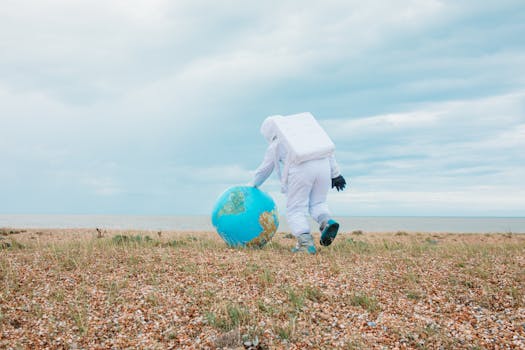
“
From Stardust to Dreams: Imagining Life Beyond the Stars
Introduction to the Cosmos and Life
From Stardust to Dreams: Imagining Life Beyond the Stars is a journey that takes us to the farthest reaches of our imagination, delving into the mysteries of the cosmos and the potential for life beyond our Earth. As we gaze up at the star-filled night sky, we can’t help but wonder if we’re alone in the universe. The possibility of life existing elsewhere is a topic that has captivated human imagination for centuries, inspiring countless scientific investigations, philosophical debates, and artistic expressions. For a deeper exploration of this theme, check out Galaxies of Dreams: How Imagination Transcends the Night Sky.
The universe is vast, comprising billions of galaxies, each containing billions of stars. The sheer scale of the cosmos suggests that the emergence of life might not be unique to our planet. The building blocks of life, such as carbon, water, and organic compounds, are found throughout the universe, providing the raw materials for life to potentially arise elsewhere. This concept is further explored in From Stardust to Dreams: Imagining Life Beyond the Stars – Exploring the Possibilities of Life in the Universe.
Exploring the Possibility of Life Beyond Earth
The search for life beyond Earth is an active area of research, with scientists employing a variety of methods to detect signs of life. These include searching for biosignatures in the atmospheres of exoplanets, studying the properties of extremophiles on Earth to understand how life could thrive in harsh environments elsewhere, and exploring the surfaces of Mars and other celestial bodies for evidence of past or present biological activity.
One of the most promising avenues for discovering life beyond our solar system is the study of exoplanets. Exoplanets are planets that orbit stars other than the Sun, and thousands have been discovered so far. Some of these exoplanets are believed to be located in the habitable zones of their respective stars, where conditions are suitable for liquid water to exist on their surfaces. Liquid water is a crucial ingredient for life as we know it, making these planets prime targets in the search for extraterrestrial life.
Dreams of Space Exploration and Colonization
Dreams of exploring and colonizing space have been a driving force behind human innovation, pushing the boundaries of what is thought possible. From the first steps on the Moon to the current ambitions to return humans to the lunar surface and onwards to Mars, space exploration has captivated human imagination and inspired generations to pursue careers in science, technology, engineering, and mathematics (STEM). For more on this topic, see Soaring Through the Cosmos: The Power of Imagination Beyond the Stars.
The potential for space colonization raises a myriad of questions about the future of humanity. Could establishing colonies on other planets or moons provide a safeguard against global catastrophes on Earth, ensuring the survival of our species? How might the experience of living in space or on another celestial body influence human culture, society, and individual psychology?
Conclusion and Takeaways
In conclusion, the journey from stardust to dreams is a profound one, inviting us to contemplate our place within the universe and the possibilities that lie beyond our planet. The search for life beyond Earth and the dreams of space exploration and colonization are testament to human curiosity and the drive to explore and understand the unknown.
Key takeaways from this exploration include:
- The universe is vast and likely to harbor life beyond Earth, given the presence of the necessary building blocks and conditions on other planets.
- The search for life beyond Earth is an ongoing scientific endeavor, with exoplanets and their atmospheres being key areas of investigation.
- Dreams of space exploration and colonization are not only about expanding our physical presence in the universe but also about advancing human knowledge, innovation, and our understanding of ourselves.






